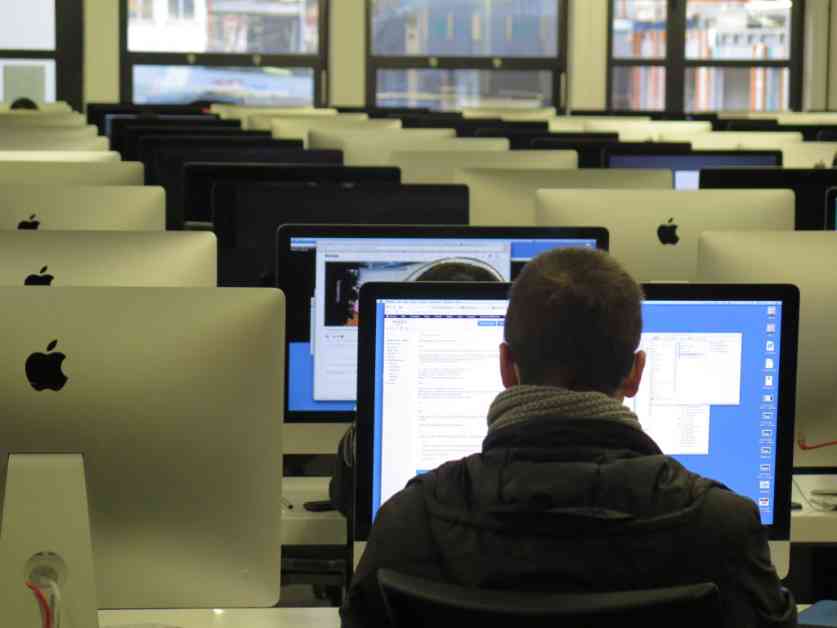California State University (CSU) has announced a groundbreaking initiative that will provide generative artificial intelligence technologies, such as ChatGPT, to students, faculty, and staff across all 23 of its campuses at no personal cost. This move comes as CSU anticipates the transformative impact of AI on higher education and the state’s workforce.
Chancellor’s Vision: Transforming Student Experience with AI
At a recent announcement held at San Jose State University, Chancellor Mildred García unveiled the AI Workforce Acceleration Board, a collaborative effort that will bring together academic leaders from CSU, representatives from the governor’s office, and industry giants like Microsoft, IBM, and Nvidia. The goal of this board is to revolutionize the CSU student experience by integrating personalized and forward-thinking AI tools across all fields of study. By doing so, the university aims to equip students with the necessary skills and knowledge to thrive in an increasingly AI-driven workforce.
The AI Workforce Acceleration Board is dedicated to preparing CSU students for AI-related jobs or advanced studies upon completing their degrees. Furthermore, the board will host events that challenge students and faculty to leverage AI in addressing critical issues such as climate change and housing affordability. CSU is committed to empowering faculty to incorporate AI into their teaching and research, as well as connecting students with AI-related apprenticeship programs.
Impact of AI on Higher Education: Balancing Innovation and Challenges
The rise of artificial intelligence has sparked both optimism and concerns within the realm of higher education. On one hand, AI is expected to revolutionize learning by providing chatbot tutors, automating administrative tasks, and enhancing scholarly research. However, there are fears that AI could devalue the significance of a college degree, compromise academic integrity, and facilitate widespread cheating in educational settings.
California’s leaders have been proactive in establishing the state as a frontrunner in generative AI development, recognizing the urgency of cultivating local talent within the sector. With over half of AI workers in the U.S. originating from other countries, there is a strategic imperative to educate and retain home-grown AI talent. Governor Gavin Newsom has taken decisive steps to address this challenge, signing an executive order to study AI’s impact on California’s workforce and collaborating with Nvidia to offer AI certificate programs at community colleges.
As CSU embraces the potential of artificial intelligence, the university system is cognizant of the financial constraints it faces amidst an impending state budget cut. Ed Clark, CSU’s chief information officer, acknowledges the need to allocate resources judiciously to fund AI initiatives, emphasizing the importance of working within existing financial parameters to drive innovation.
Empowering CSU with AI Tools: A Transformative Partnership
CSU’s adoption of OpenAI’s ChatGPT Edu marks a significant milestone, representing the largest deployment of ChatGPT worldwide. This educational version of the chatbot, already utilized by prestigious institutions like Arizona State University and the University of Pennsylvania’s Wharton School, will provide CSU with a secure platform for AI-powered interactions. Unlike the standard ChatGPT, conversations using ChatGPT Edu will remain within CSU’s ecosystem, ensuring data privacy and confidentiality for users.
Under a system-wide agreement with OpenAI, CSU will invest approximately $16.9 million over the partnership’s duration to make generative AI tools widely accessible to its affiliates. Beyond ChatGPT, CSU plans to integrate AI functions within its existing software suites, such as Microsoft Office and Zoom, while offering comprehensive AI training modules to enhance the skills of students, faculty, and staff members. Nvidia’s educational resources will include training sessions with compute power to familiarize students with GPUs, essential components for AI model development.
As CSU forges ahead with its AI initiatives, the university is in the process of finalizing the composition of the AI Workforce Acceleration Board. Expected to feature key members from Newsom’s cabinet and prominent industry players, this board will play a pivotal role in steering CSU towards a future centered on AI innovation and excellence.
In conclusion, California State University’s embrace of generative artificial intelligence underscores its commitment to fostering a dynamic and future-ready educational environment. By leveraging cutting-edge AI technologies, CSU aims to empower its students, faculty, and staff with the skills and tools necessary to thrive in an evolving workforce shaped by AI innovation and excellence.




















